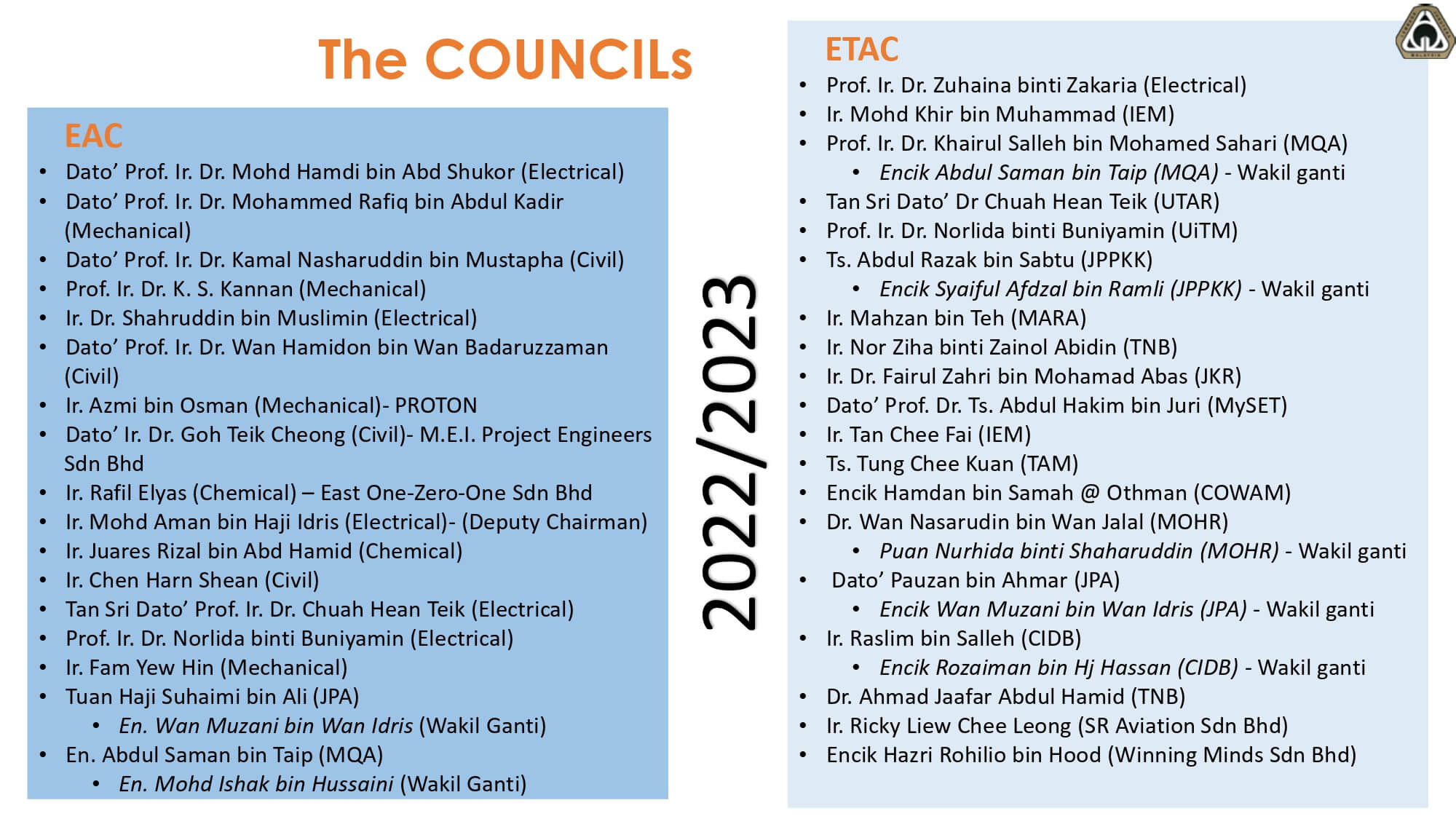About EAC
Engineering Accreditation Council (EAC) is the body delegated by the Board of Engineers Malaysia (BEM) for accreditation of engineering degree programmes. The EAC was established in 2000, comprising representatives from the BEM,The Institution of Engineers Malaysia (IEM), Malaysian Qualifications Agency (MQA) (formerly known as Lembaga Akreditasi Negara), and the Public Services Department (PSD). Since its establishment, the EAC through the Engineering Accreditation Department (EAD – established officially in 2006) has ensured that through the accreditation process, the qualities of graduates of accredited programmes enhanced. Accredited programmes are placed in the EAC and MQA registers.
On record, the BEM/EAC has since awarded accreditation to 356 engineering programmes conducted by 57 IHLs in Malaysia.
The operation of EAC is supported by its administrative arm, the Engineering Accreditation Department (EAD). The set up includes a Director, six (6) engineering clusters of Associate Directors and secretariat. The Department is also supported by a task force and it’s committees that oversee the development of accreditation standard, the outcome-based culture at IHL, quality assurance and international affairs EA is currently operating under its own budget obtained from accreditation fee paid by IHLs and continuous support of the BEM.
One of the greatest achievements of the EAC was the successful accomplishment of the full signatory status of the Washington Accord (WA) for Malaysia (BEM) in 2009. The BEM was given an extension of six years, with 16 signatories unanimously agreed to accept the recommendation of the Review Team in the IEA Workshop & Meeting 2016 that was held from 30th May till 3rd June 2016, in Kuala Lumpur, Malaysia. Through this recognition, EAC’s accredited engineering programmes are now mutually recognised by the current 21 other signatories of WA. The EAC’s accredited engineering programmes are now benchmarked to an international standard that emphasises much on the quality of the programmes and graduates produced. EAC is determined to uphold the high standard of accreditation processes to become the main catalyst for change in Malaysia and the region.
This contribution serves the national interest of Malaysia, where through enhanced education standard, the country’s education system is now at a world class standard on par with many advanced countries in the world. This has attracted many foreign universities in opening up branch campuses in Malaysia with confidence, thus helping to expedite Malaysia in becoming an international hub of engineering education.
BEM’s role in the IEA and WA has been significant and has achieved recognitions from IHLs and government bodies. The involvement in the WA, NABEEA, European and other bodies (such as CTI of France), has enhanced BEM’s reputation towards strengthening its international recognition.
The challenges that remain ahead for Malaysia are to keep abreast with the international standards and expectations. EAC has established strategic, action plans and targets to ensure that EAC meets these challenges.

